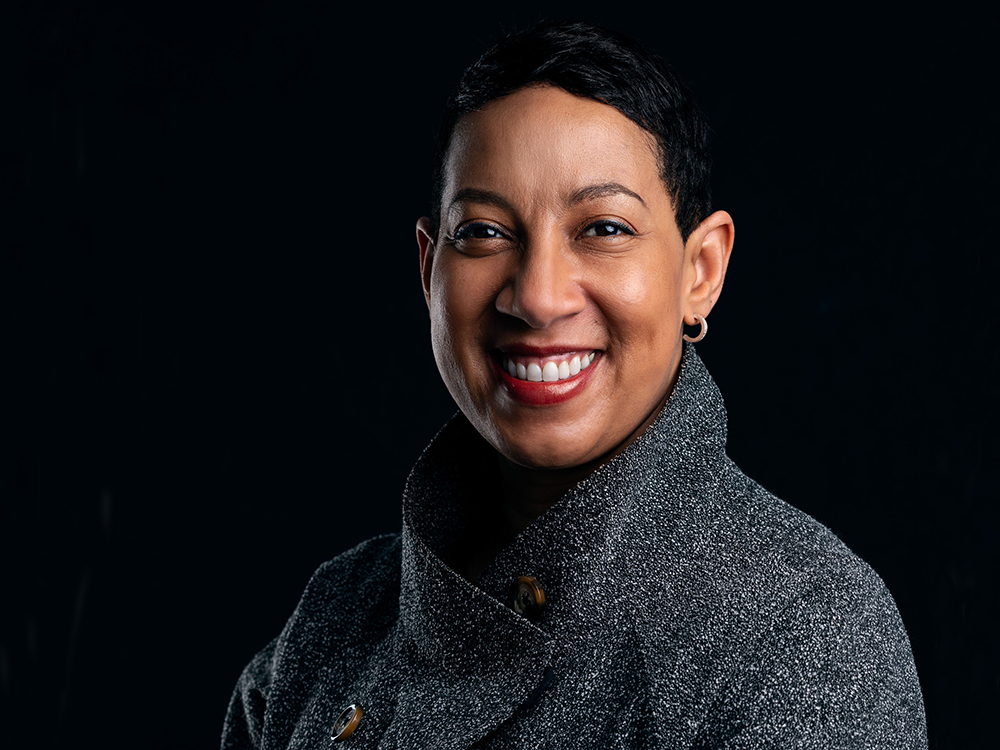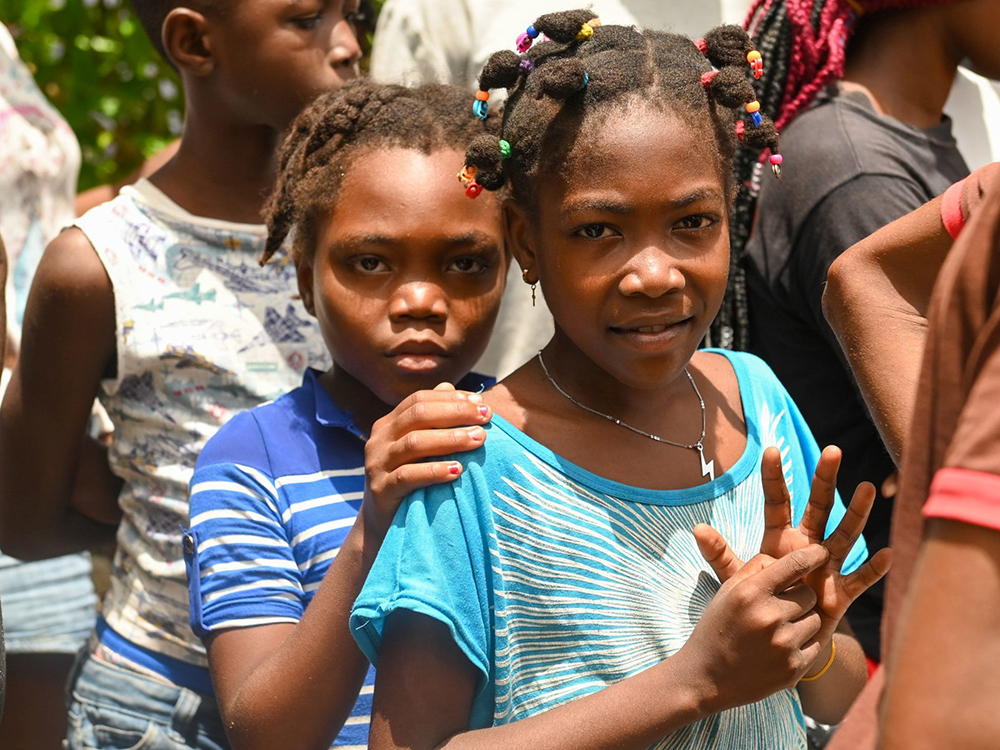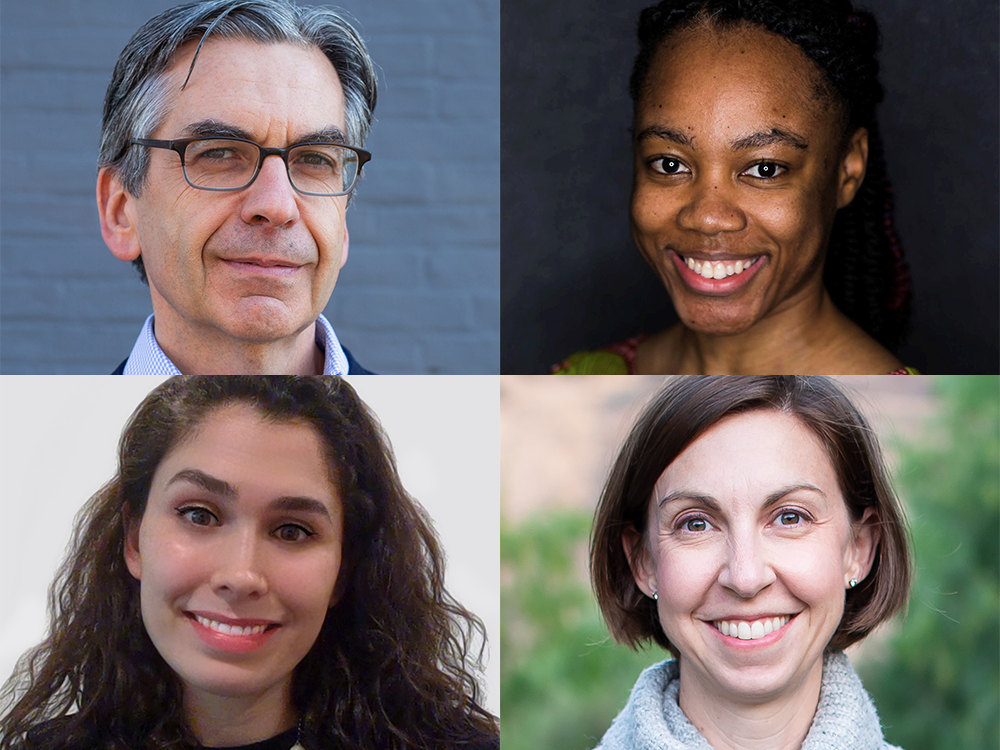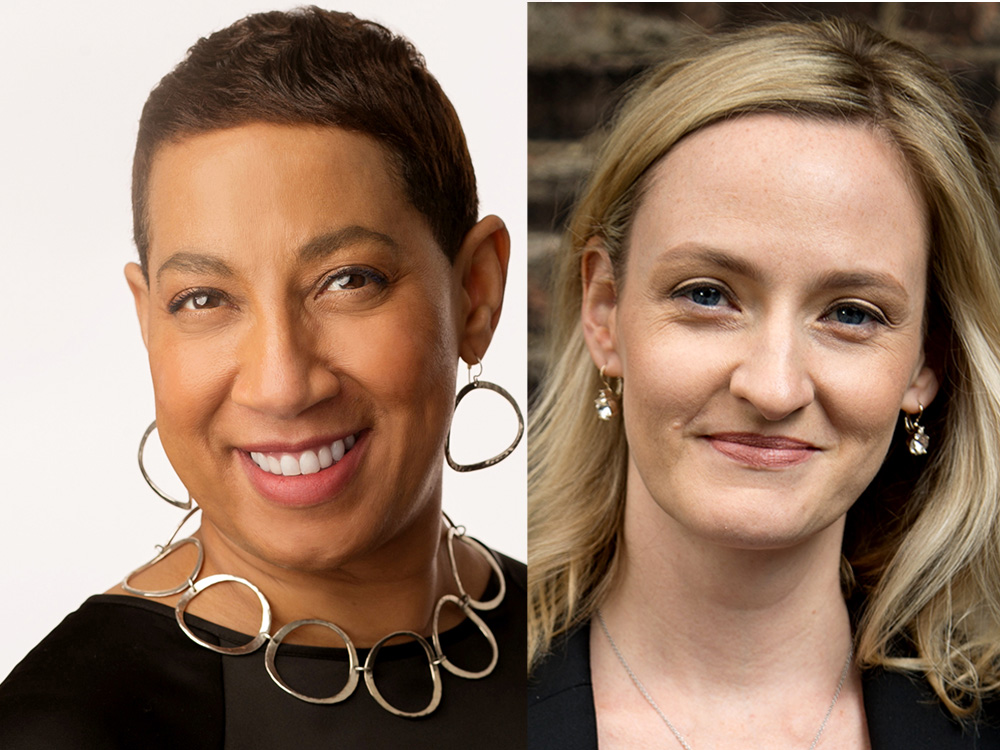
In the first of a series of conversations between PEAK Grantmaking President and CEO Satonya Fair and members of the PEAK community, she spoke with Jim Canales, President and Trustee of the Barr Foundation. A PEAK Organization Member since 2011, Barr is a Boston-based grantmaker focusing in the arts, climate, and education, but also maintains a sector effectiveness program devoted to increasing the impact of the social sector across New England.
In an August 2020 post on the Barr Foundation blog – “An Enduring Commitment to Racial Equity,” Canales underscored Barr’s dedication to the work of equity in grantmaking – focusing especially on racial equity, and committing themselves to becoming an antiracist organization. Fair and Canales discussed how this moment is adding urgency regarding these issues, the values that shape Barr’s response, and how the foundation is working to understand, implement, and promote needed changes.
Jim Canales: Let me say something at the outset: In addition to welcoming you and remarking how thrilled we all are to have you in this role. I just want to say a word of thanks for PEAK. I think, in our field, we often don’t give sufficient credit to the role that grants management professionals play. We need to understand that this is the guts of the enterprise. Without an effective grants management team and set of processes, the operation is not able to function.
That perspective very much informs the way I think about the role of grants management. To achieve a foundation’s mission goals and programmatic objectives, CEOs must be attentive to the integration of, and the partnership between, programs and grants management. I think that’s the fundamental basis. And I would also make the case that grants management plays a critical role in the issues around racial equity that we’ve all been grappling with.
Satonya Fair: I really appreciate that. We always say that equity has been at the core of our work since the beginning, because grants management was not seen as a defined role all those years ago. We weren’t appreciated for our unique ability to view the work through multiple lenses – technical, programmatic, and administrative. You’ve spoken to my own struggle in trying to help members of our community get in front of their directors and executive staff in order to share ideas and what they’ve learned. I hope everyone in the community will hear that!
Of course, there are many executives who share your perspective, but people in the profession have had to travel a long, hard road to get that recognition. We don’t often speak about it, but I think getting leadership support is something that weighs on many of us.
As part of the resources we’re developing around our five Principles for Peak Grantmaking, PEAK was excited to publish a case story written by Barr’s Director of Grants Management, and PEAK Board Member, Kerri Hurley, addressing your organizational values in terms of one of those Principles, “Narrow the Power Gap.” Can you share how Barr lives out its organizational values through its grantmaking principles?
Canales: As you may know, on our website, we articulate six values. I want to pull two out that I think are most relevant to equity – that is, to narrowing the power gap.
One is humility, which emanates from our co-founding trustees. It’s acknowledging that, yes, there is a power differential here, we understand that that power differential exists, and we’re trying to do as much as we can to reduce and narrow that power differential.
The other value is curiosity. In combination, a lot of that comes down to approaching our work with empathy for those who are engaging with us.
One of the ways they come together, and Kerri talked about this in the profile, was an exercise we did as a staff where we put ourselves in the role of an applicant to see all the steps that they had to go through. What we learned from that led to changes in our application process.
More recently, many of us have signed the Council on Foundations pledge to be more responsive to this moment. We’ve adopted a lot of new practices, like pushing off reporting requirements, converting grants to general operating support, and releasing payments sooner.
As with all institutions, we’re a work in progress. I think constantly interrogating our practices is something that we are deeply committed to as a foundation, and very much emanates from those values.
Fair: I always think that the humility piece is key – asking, How are our grantees right now? Are we inadvertently putting even more pressure on them, especially at a time when we really want them focused on their communities?
Canales: I hate to say that there are silver linings to COVID, but I think that, as we reflect on the changes we’ve made in response, we are going to find some worth embracing whole cloth going forward.
One of the things we did, in seeking new partners in response to emerging needs: We did not ask them to submit proposals. We said that if there was something that they had submitted to another funder, we would be happy to look at that.
That’s an example of where we don’t need things to be so customized, where we can exercise flexibility and, again, empathy. Because we know that our partners have been stretched beyond what’s reasonable, we’re figuring out the ways to ensure that we’re not adding to their burden.
Fair: That leads me to my next question, regarding your recent blog post helping the community understand Barr’s very specific intention in becoming an antiracist organization. Can you speak about your journey to becoming this forward in your efforts? And how are you pivoting your long-term strategy to support that?
Canales: I want to be very clear that we are a work in progress. It is a journey: We certainly don’t have all the answers, and there are other funders that have been working on these issues for much longer than we have. We look to them as role models.
This is not a recent pivot for us: This has been a body of work that we’ve been engaged in for the last several years as a staff, with our trustees, and particularly with our board chair, who’s been deeply engaged. Where we’ve looked at questions of diversity, equity, and inclusion, we’ve also looked at questions of racial equity, at our history as a country, how racism presents itself in policies and structures today, and how our own practices reflect that.
However, the events of the last six months have very much accelerated our urgency in understanding the role we can play to address these concerns constructively.
They have led us to lay out three really important principles, described in that blog post. One is making an enduring and sustained commitment to racial equity. We do not want to take the flavor-of-the-month approach that funders are often criticized for: claiming to prioritize an issue but then, within a year, shifting to other areas.
This was an explicit conversation with our trustees. Deciding on a sustained commitment led to the second principle, around antiracism. We’ve been cautious in declaring Barr is an antiracist foundation, because we don’t fully know what that means. We’re deeply committed to understanding what that would look like: the actions we need to take and the changes we need to put in place.
The third principle is holding ourselves accountable. Because philanthropy is largely accountable only to itself, this was especially important. We’re going to talk about what we’re doing and what we’re not doing; how quickly we’re moving, and, if we’re not moving quickly enough, why not; the questions we’ve been asking, and the answers that we’ve put in place.
Accountability is one of the reasons we have really ratcheted up our communications about our equity journey: The more that we can share publicly, the more others can tell whether we’re following through, and report back to us on our progress.
Fair: I was so pleased to see that accountability piece. As it relates to racial equity, accountability means sustainability.
I would think it’s very natural in this process for your program officers to ask, “How does this impact me?” How have you talked with them about what could be different in the future?
Canales: One of the things that came out of the trustee discussion we had in June was a request for our program teams to think more deeply about what it would mean to more fully integrate racial equity into their work, while assuring them that the foundation is committed to putting additional resources into grantmaking to advance that effort.
The question wasn’t, “Here’s your $20 million grantmaking budget; how you can recalibrate that budget so that we can more deeply invest in racial equity?” Instead, it was, “This is your $20 million grantmaking budget; if you were given additional resources to focus even more explicitly on racial equity, what would that look like? Where might you invest more deeply? What new work might you pursue?” That’s the process that we’re in right now.
Fair: That is excellent. The pandemic has revealed so much about what we already knew about health disparities in communities of color and among rural whites, who have been completely forgotten about by a lot of folks. From the pandemic to the economic collapse, philanthropy’s investments and the way that we disburse funding is so important. When you think about the level of the challenges, what do you see as the most critical shifts needed? Not just for Barr, but for philanthropy.
Canales: It’s a really challenging and important question. Because you mentioned it ahead of time, I used that question to crowdsource thoughts from my team. I got lots of responses, with several themes that stood out to me, and that I wanted to share.
One was the need to focus on movements, not issues. This is a perennial issue in foundations. As you know, we’re very siloed in these program areas. How do we think about movement-building, as opposed to the narrow fields that we tend to fund?
Another thread was the importance of stepping up our investments in BIPOC leadership. One of Barr’s core values is investing in leaders, and now’s the time for philanthropy to make the kinds of unrestricted investments that say, “We trust you. We are behind you.” I don’t know that we’ve necessarily done that as a field.
Another theme was the importance of facing racism in our own institutions and the issues that we work on. At Barr, part of that journey has been our ability, as a staff, to have some uncomfortable, challenging conversations about whiteness, white supremacy culture, and how those issues manifest in our own organization.
Philanthropy is a very polite culture, and that politeness is valued, I think, because people are trying to bring the best of themselves. But I also think that, at times, it keeps us from having the more challenging conversations about race, which are critical in our institutions.
Another theme was the importance of pooling resources. We often try to go it alone. Funders like to have their own initiatives, their own branded efforts. I think there is something [important] in the notion that we can partner with others and aggregate resources – maybe even putting resources behind ideas that others have.
The final theme is around how we share power: Speaking [out loud] about the power differential that exists, asking how we can cede power, thinking about participatory grantmaking, and ways of bringing others to the table when we’re developing strategy.
Fair: Of those different themes, where do you think about your own ethos and how you show up every day? Which one would you pick to dig into?
Canales: If I had to pick only one, it would be investment in BIPOC leadership. I’ve been thinking about the unintended consequences of some of the policies and practices that we have as foundations. As an example, one of the things that we are often very sensitive to is how large a grant should be as a proportion of an organization’s budget.
That often comes down to funders wanting to ensure the organization doesn’t become “dependent” on us. It also comes back to issues around tipping, which are legitimate, but I think often it’s a way of saying “We can’t give too much.” There’s a fundamental question underneath that approach: Does it curtail our ability to make the kind of significant investments needed? How many smaller organizations remain smaller because of this very issue?
We perpetuate this cycle by thinking we can’t take a risk on smaller organizations. We might make a $25,000 grant, but we would never think about making a $100,000 grant to an organization that has a budget of $150,000. Not to imply that BIPOC only lead in smaller organizations – it’s simply to say that I think our ability to invest in organizations that are more authentically rooted in communities of color is restricted by our policies and practices.
So, I’m really interested in unpacking that, and figuring out ways to ensure that we are making the kinds of sustained investments in leaders of color who are authentically rooted in communities.
Fair: I agree. I see these amazing grassroots organizations, often led by people of color in low income communities, and they are just so under-resourced. We know that the majority of funds still go to the most resourced of our nonprofit partners, because they have a development officer and different types of board members to make the application.
The model may be a little bit broken in the way we think about funding organizations, and the small, grassroots organizations that are often doing the deepest work, according to people in the community, often go unsupported.
As for sharing power, we know that someone has to give something up in order for someone else to gain. How do you go about making that sacrifice?
Canales: One of the decisions that our co-founders, Barbara and Amos Hostetter, made was to reorient Barr from a family foundation – they had only two trustees before I arrived – to a legacy foundation that would bring in other voices from the community, particularly around that board table.
They also made the decision that the board would, over time, always have a majority of non-family members. This is one of the most impactful power-sharing decisions that a foundation can make. When I’ve talked to other family foundations, they’re often kind of struck that wow, your founders made that decision. That’s big, because at some point, Barr will be owned by community members.
Fair: That is something that people probably need to hear. PEAK is approached by members at family foundations who very quietly report that they are really struggling, especially around power sharing and equity. It’s a testament to the Hostetters and all they’ve done to get Barr to this moment and positioned for the future. You’re able to pivot because of that mindset – that we can’t just be what we were, that we have to be what is needed. That making an investment in community is never a bad thing.
Fair: Public policy engagement is not something that all foundations do well. Why do you believe it’s important for the organization to really pursue that policy piece?
Canales: For those foundations that do embrace public policy, as we do, it’s born of a recognition that we don’t have all the resources to address the big challenges that we’ve decided to take on. We need to connect to systems that are taking on those challenges. Obviously, the public sector is a massive contributor.
So how do we influence the levers of change within the public sector? You can identify grantees that are working on public policy engagement. You can also focus on the relational aspect, how we as funders approach our work in relationship with public sector partners. Barr has always worked to build goodwill and trusting relationships at the local level with Boston city government, and at the municipal level working with other cities in Massachusetts. Our staff see it as important to build relationships with public sector leaders, especially those who have been there for decades and understand how the apparatus works.
Sometimes this work is about commissioning research that would inform a public policy issue, which I think is one of the more powerful levers for philanthropy. Another really important tactic is communication: foundations finding those places where we can contribute to the public dialogue about an issue that’s important to our community.
Fair: It’s critical for us to remember that the government is bigger than we are, and investing more than we are, but we have a role that’s really critical to helping them move forward.
We really appreciate your commitment to the sector. Is it your belief that these investments come back around?
Canales: Absolutely. In addition to our three core programs, we have a sector effectiveness program that focuses on investment, and what we call infrastructure organizations for philanthropy. Those are critical, because we’re ultimately investing in the strength of our own field, the development of our own teams and our own staff. To me, that’s part and parcel with what we’re about.
Fair: I agree: Being forward-thinking and investing in the field helps organizations pivot quickly and be much more flexible and nimble. Grants management professionals are out there learning, gathering the research and data, and we’re ready to go, but we can’t do it without those investments in responsive systems. It’s really about bringing those two things together.
There are so many more things for us to do, but I believe Barr’s focus on accountability and sustainable change, and articulating it, will be very important. We’re already hearing that some funders, or their boards, are wondering how long we have to stay in this moment of change – when they raise up the barriers again. One focus of my tenure is going to be ensuring that these barriers don’t come back up. So, for myself, PEAK, and the sector: We appreciate what you’re doing to sustain the progress we’ve made and contribute to further change.
Canales: We appreciate you too. Organizations like PEAK are vital to the sector, not just for the content you focus on, but for networking, relationship building, sharing lessons, and sharing strategies.




